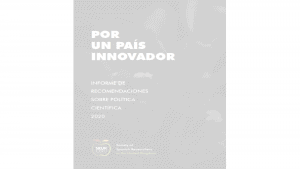- The Society of Spanish Researchers in the UK, with close to 700 members, holds its VII International Symposium in the city of Liverpool, with the role of science in society and the dangers of pseudotherapies as main topics.
- This symposium has helped to reflect on the importance of creating a scientific culture in today’s society, as well as strategies to counter the advance of pseudoscience.
Liverpool, 29th of June 2019. The Society of Spanish Researchers in the UK (SRUK/CERU) is holding its VII International Symposium this weekend. This event, which takes place in Liverpool for the first time, started yesterday with a welcome reception at the Victoria Gallery & Museum at the University of Liverpool, with the attendance of the Deputy Mayor for Liverpool City Council, Ms. Wendy Simon; Prof. Wiebe Van der Hoek, Vice-chancellor of Science and Engineering of the University of Liverpool; and Dr. Paloma Domingo, General Secretary of the Spanish Foundation for Science and Technology (FECyT). In Dr. Paloma Domingo’s words, “From FECyT, we highlight that SRUK/CERU has proven how important scientific societies are and how important civil society is in pushing the debate and the agenda of science and technology forward”. Both Prof. Wibe Van der Hoek and Ms. Wendy Simon underlined that science plays a vital role in citizens’ health, thus being an honour for Liverpool that SRUK/CERU has chosen this city to hold the VII edition of their International Symposium. Altogether, this helps to promote Liverpool as a cultural and scientific reference in the UK.

About 100 researchers have taken part in the event entitled “Here comes the science”, paraphrasing the famous song by The Beatles, “Here comes the sun”, on a weekend focused on communication of cutting-edge science to a wide audience and on debating possible strategies to curb pseudosciences. During the multiple sessions of scientific talks, posters and discussion panels; attendees have been able to hear from Prof. Robert Bristow, director of the Manchester Cancer Research Centre, about the importance of genomics in the evolution of prostate cancer and how the environment that surrounds it can affect the outcome of the treatment given to each individual: “We know that hypoxia (low oxygen levels) is related to the relapse of prostate cancer patients years after finishing radiotherapy. Through the International Cancer Consortium, we were able to coordinate different research groups around the world to determine genetic fingerprints that could allow us to predict which patients could be more likely to develop secondary tumours and metastasis”. In the same session, CSIC researcher Dr. María Puerto-Morales highlighted the potential role of nanotechnology in biomedical imaging and in the development of personalised therapies to improve the patients’ lifespan: “One of the advantages of magnetic nanoparticles is that we can predict which area they are going to target. Furthermore, we can modify their size, composition, shape, and functionality depending on the needs of each particular biomedical application”.
The climate emergency is another topic discussed at the event. Dr. Alejandro Sánchez de Miguel, researcher at the University of Exeter, talked about how light pollution can affect our environment as well as the world population’s lifestyle and health. He also discussed new strategies that could be applied to minimise light pollution by using efficient lighting while reducing the emission of blue light. Sánchez de Miguel is one of the pioneers from the Cities at night, a project aiming to improve awareness of this issue by encouraging people to take pictures at night worldwide and upload them in a shared database from which further research can take place.
In Dr. Javier Escudero‘s words, the SRUK/CERU president: “This symposium is a new success for our society. It is the second symposium held outside London, which shows the great geographic diversity and strength of our society. We have managed to reach a broad audience interested in scientific meetings who share the aim to continue as a cooperative network that unite us as a well-established scientific society, being a point of reference for both the UK and Spain”.
The symposium will continue on Sunday with a Science Festival (“Science Zone”) open to the public, and the Annual General meeting of the Society, where some of the positions of the board of directors are elected. Next year, Dr. Rocío Gaudioso will be the new president; Dr. Carmen Sánchez, the new vice president; Mr. Miguel Cacho, new director of communication; Dr. Javier Burgos as Roving Director, and Mr. Pablo Izquierdo as director of scientific policy. Gaudioso, the new president of SRUK/CERU and originally from Seville, has remarked that, during her time as president of the Society, she will “work to consolidate SRUK/CERU in the UK to make the voice of Spanish researchers be heard in the last stages of the Brexit negotiation and the following transition”.




